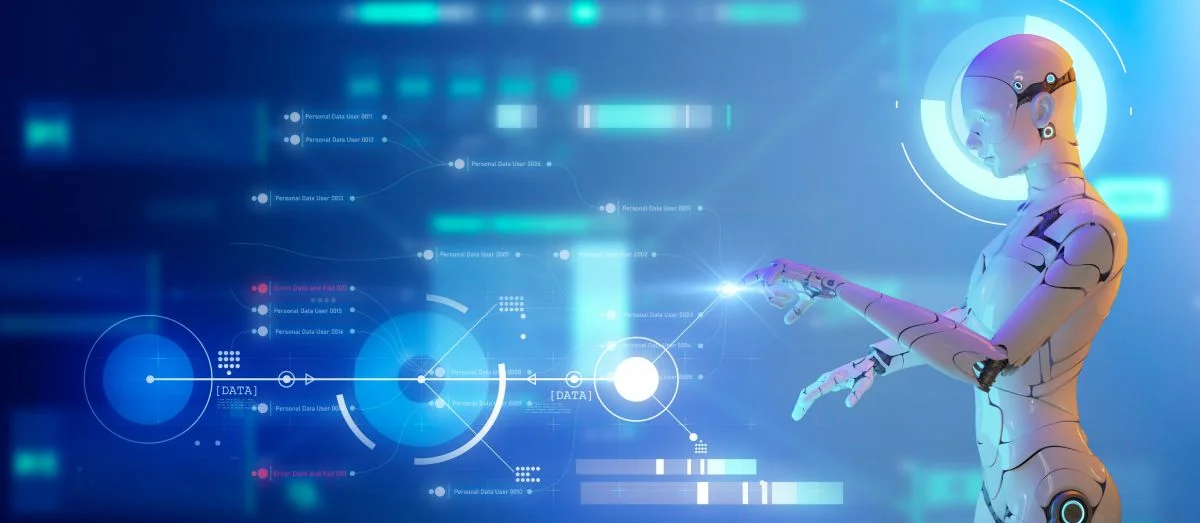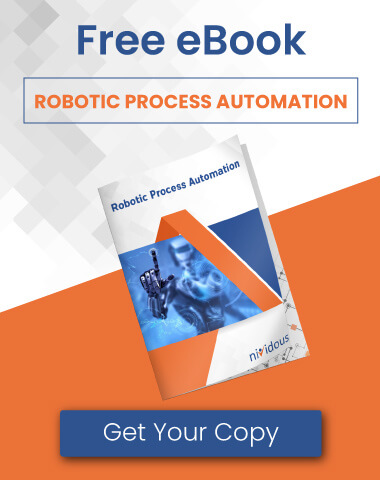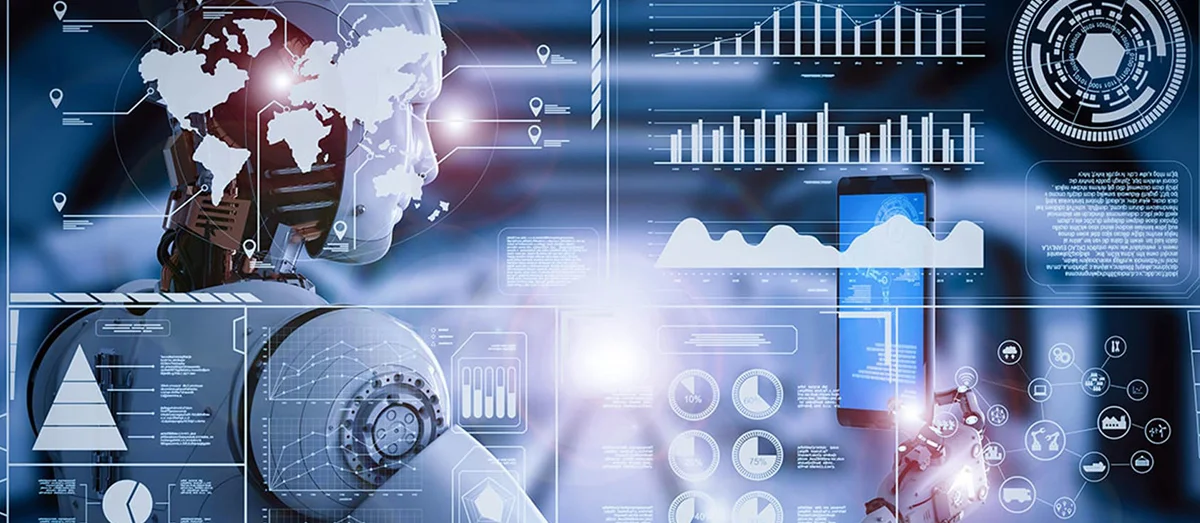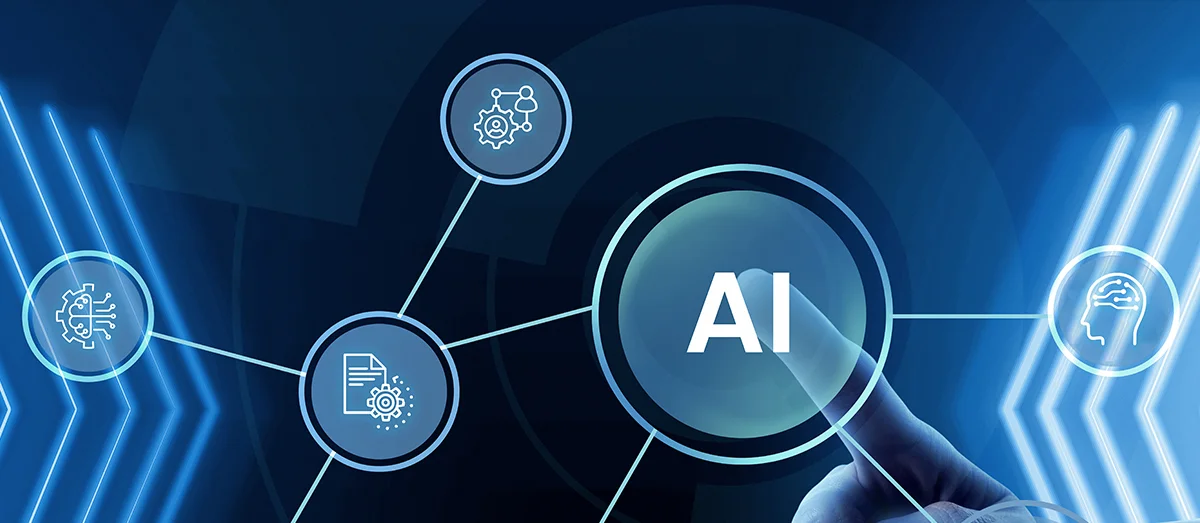It’s been said that a failure to prepare is sure preparation for failure—and now is the time to prepare for the future of automation. Many organizations have already begun testing the waters; nearly three out of four executives say their company has an intelligent automation initiative currently underway. But if you’re still in the research phase, you’re in the right place. Here you can explore some key automation trends, see what lies ahead for various industries, and learn how automation is likely to transform the future of work.
The Future Of Automation: 3 Key Trends
Intelligent automation has already revolutionized the way we do business. In the coming years, enterprise leaders will benefit from smarter, higher-value automation platforms, holistic solutions that replace single-use tools, and increasing worker confidence in intelligent automation.
1. Business process automation will become easier, more effective, and less expensive.
In coming years, day-to-day processes will be automated more quickly and efficiently thanks to advances in artificial intelligence (or AI). AI is technology that can be used in a solution to “learn” over time, similarly to people. Used in tandem with robotic process automation (RPA), AI can accomplish tasks of increasing complexity, including those that involve complicated decision-making. Within the next decade, advances in AI will increase the number of processes that can be automated, and also increase the effectiveness of processes that are already automated.
Take Intelligent Document Processing (or IDP) as an example. IDP uses AI to process unstructured and semi-structured data from documents. Improvements in AI will drive higher confidence scores for structured data that is extracted and this will result in less need for human review as part of the process. This is possible because the Nividous platform allows the user to set a threshold for confidence scores, above which, data is automatically passed to the next step in the process. As reliance on IDP increases, people will have more time to work on high-value tasks.
Not only will AI improve the automation of business processes, but it will also drive down costs. Assuming a corollary to Moore’s Law (which predicts that computing speed doubles every 18 months), once you’ve made a commitment to automate, your processes will continue to improve exponentially, becoming faster and more efficient in the long-term. Your costs of doing business will steadily decline over time, and your people will increasingly generate higher-quality work product in a shorter amount of time.
2. End-to-end solutions will drive technology adoption.
In today’s market, business leaders are looking for solutions to their business challenges. Very few are actively looking for technologies like RPA or AI to implement, but they are more than happy to use those technologies as part of a solution that improves their bottom line in some way As an example, it’s more likely that an insurance company will be looking for a customer onboarding solution rather than exploring technologies like RPA or AI independently.
When it comes to selecting vendors, enterprises are looking for those whose offer is the best fit for their specific problem or need. This cycle produces market leaders in specific areas of automation fighting to meet niche demands; the end result is a fragmented market.
In the future, enterprise leaders will likely recognize that using, say, 15 tools from 15 different vendors that perform similar functions is inefficient and unsustainable. Comprehensive and holistic solutions that streamline processes from end to end will gain a greater foothold.
An innovation like hyperautomation, which combines RPA with AI, and Business Process Management Systems (BPMS), is capable of automating, for example, a customer onboarding process from beginning to end, and will prove essential for helping future leaders streamline operations.
3. Business teams will welcome increased automation.
People and companies are increasingly realizing that automation won’t upend the workforce. On the contrary, automation frees up time for strategizing on everything from new ways to innovate, to improving customer care, to providing a better work/life balance for employees. And companies benefit from helping their teams be more productive—not from eliminating positions. Not to mention that most tasks automation can and will tackle in the future are only a small portion of employees’ overall contributions.
The future of automation will prioritize augmented intelligence, wherein AI supports the growth of human intelligence. Human intelligence and AI are, in fact, powerfully complementary. Considering the products of augmented intelligence in use today (including IDP, AI Chatbots, predictive analytics, and automated reporting), it’s only a matter of time before AI holds a natural, extensive, and well-appreciated role in most businesses.
Automation And The Future of Work By Industry
What will automation look like on a more detailed level? That will vary by industry, especially depending on the degree to which industries have already adopted intelligent automation. Based on the work we’ve done with clients, here’s a brief glimpse into how we believe automation will help six major industries streamline operations in the future:
Finance And Banking
Financial institutions were early adopters of automation and will continue to benefit from improvements to AI. The use of RPA bots in tandem with AI will automate whole processes like mortgage loan processing and trade finance, thus reducing errors, ensuring compliance, and fostering better relationships with customers.
Are you ready to transform financial services with AI and automation?
Watch our expert-led on-demand webinar to learn how AI and intelligent automation are transforming payment processing.
Insurance
RPA is already helping many insurance providers speed up processes from customer onboarding to underwriting. The next chapter will involve end-to-end automations fueled by AI that improve both customer-facing and back office efficiency, including from policy validation, compliance reporting, and auto-termination pay-outs.
Logistics And Supply Chain
As a result of the pandemic, this sector is divided between those who recognize the urgent need for automation and those too buried by daily work to institute change. Regardless of where they fall, in the future these businesses will increasingly benefit from smart automation that can streamline verification, automate manual shipping tasks, and streamline invoice collection and processing.
Manufacturing
In the manufacturing sector, automation itself isn’t a new concept; it’s digital process automation that’s novel. In the coming years, leaders in manufacturing will begin to incorporate more RPA to streamline entire processes and improve compliance end-to-end, from processing orders and BOMs (Bills of Materials) to product distribution, including transportation and delivery.
Health Care
Speed and efficiency are no longer the end goals for health care organizations—improved patient care and health outcomes are the primary focus. In coming years, as the healthcare industry begins to incorporate (and trust) RPA, human workers will be able to spend less time on coding and billing, and more time on improved patient experience.
Life Sciences
Like healthcare, enterprises in the field of life sciences tend to favor long-standing, “proven” solutions over novel ones and have been slower to adopt automation. As this changes, the industry will see more new drugs faster, better health data, improved compliance and pharmacovigilance, and more meaningful interactions with patients.
5 Ways Automation Will Transform Worklife
Across industries, automation is set to change the way we work for the better. Here are a few improvements you can expect to see regarding automation and the future of work.
1. Shorter, more positive customer interactions
Quite simply, automation improves efficiency and saves time for people to focus on what matters most, a development that benefits both customer and company. When customers can easily ask questions, schedule appointments, troubleshoot, and provide requested information to companies securely using RPA technology, necessary human interactions can occur more quickly and desired outcomes can be achieved faster. Human-to-human interactions will also be more positive when workers have energy to focus in a genuine way and customers feel their needs are being prioritized.
2. Better decisions resulting from faster data access
Smart decisions require fast access to key data. As an example, consider how an eyecare group that serves 500 patients daily used automation to aid decision-making. With the help of the Nividous platform, they implemented RPA Bots to check patient eligibility information for over 40 insurance providers. As a result, this business team was able to provide more accurate benefits information to patients at check-in; patients could then make payment decisions faster, which ultimately saved the eyecare group time and money. In the future, as AI technology improves automations, all healthcare organizations will be able to benefit from the easy accessibility of more accurate data.
3. Greater location independence
In many cases, automation removes the need for geographically-dependent human interactions. It contributes to an increasingly hybrid work culture in which meaningful accomplishments can be achieved by team members anywhere in the world.
Additionally, intelligent automation can streamline business management itself. Instead of a project manager organizing projects, monitoring workers, moving data, and producing reports manually, intelligent automation can take over, handling these tasks and more. It can even automatically nudge employees or send push notifications when a task is completed.
4. Reduced stress
In the future, automation will take care of less mission-critical tasks and data that has historically required human input, validation, and verification. For traditionally high-stress roles, these improvements will be key.
And for roles of all kinds, having a mechanism to reduce human errors will be a huge relief. Delegating human staff to higher-value tasks (not data-handling tasks better handled by intelligent automation) will dramatically increase accuracy and minimize errors.
5. Increased potential for professional fulfillment
Performing manual and monotonous tasks repeatedly over long periods stifles human creativity and motivation. As automation reduces repetitive data input, shuffling, and basic analysis, human workers will have more bandwidth to boost their professional skills and discover untested strengths.
If a bot can do a specific task more efficiently than human workers, those workers ultimately stand to gain by focusing their efforts elsewhere.
Start transforming your organization for a better now with the Nividous platform.
Ultimately, the future of automation is all about people. Nividous can help your team design and implement automation systems made to serve the human workers who will inevitably determine your success. Whatever your administrative challenge, find out how the Nividous intelligent automation platform can strengthen your business today and for many years to come.
The future of automation is now—start streamlining your business processes today.
Experience the Nividous platform with a free, personalized demo.





